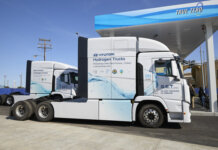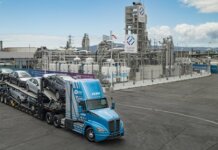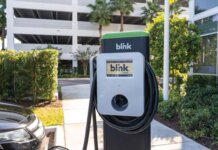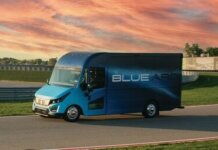The adoption of stringent emission regulations across regions to safeguard the environment is a prominent factor transforming the commercial trucks industry, according to Frost & Sullivan’s recent analysis, Truck OEM Strategies for GHG/CO2 Regulation Compliance, 2020-2030.
Original equipment manufacturers (OEMs) are exploring advanced internal combustion engine (ICE) concepts, energy recovery systems, advanced aerodynamics and driver assistance systems to improve fuel efficiency. Globally, 2.37 million powertrain units are expected to be sold by 2030 that will include 1.8 million units of diesel powertrain, 0.57 million units of xEV (which includes hybrid, plug-in hybrid, battery-electric and fuel cell-electric vehicles) and natural gas powertrains.
“Innovation in environmental sustainability and digitization are taking center stage,” says Saideep Sudhakar, research manager of mobility practice at Frost & Sullivan. “As a result, connected, shared, autonomous and electric (CASE) are driving the transformation in the commercial trucking industry. The next five to seven years will foresee a strong proliferation of electric trucks. This transformation toward CASE will help achieve a cleaner and safer environment.”
These changes in the commercial truck industry will present growth prospects for market participants, such as:
- With strict emission regulations in various regions, advanced transmission, aerodynamics, advanced boosting and auxiliary electrification will gain prominence in diesel trucks.
- Modular electric vehicle (EV) platforms and flexible manufacturing will help OEMs adapt to the electrification trend.
- European OEMs are shifting to vertically integrated engines and transmissions with proprietary turbochargers to attain precise control over engine mapping and vehicle drivetrain. Proprietary natural gas engines and EV platforms form a part of the OEMs’ powertrain diversification.
For further information on this analysis, click here.







It’s a stretch to say that there is great promise for electric heavy duty trucks. There is no commercially available total electric truck, there are inadequate charging stations and it takes too long to charge. The range of total electric will not match RNG powered trucks. RNG is environmentally cleaner than total electric when you consider the “carbon cost” of electric production, battery production and disposal, mining of lithium needed to make the work. RNG is a non fossil, totally renewable fuel that is carbon negative and near zero emission. Production of RNG also solves the age old problem of… Read more »